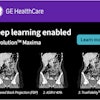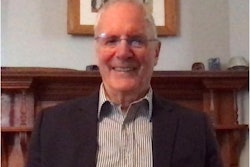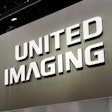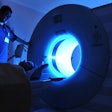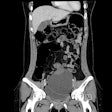The European medical imaging community is mourning the loss of Prof. Jan Peregrin, the respected educator and visionary in interventional radiology who died on 17 May.
“Prof. Peregrin profoundly shaped the field of interventional radiology in the Czech Republic and beyond,” noted an obituary posted by the Cardiovascular and Interventional Radiological Society of Europe (CIRSE). “Prof. Peregrin’s contributions to interventional radiology education are unmatched.”
Serving as head of radiology at the Institute for Clinical and Experimental Medicine (IKEM) in Prague for many years, he was “a trailblazer in renal and vascular interventions, his career spanning decades of innovation, mentorship, and dedication to his patients,” CIRSE added.
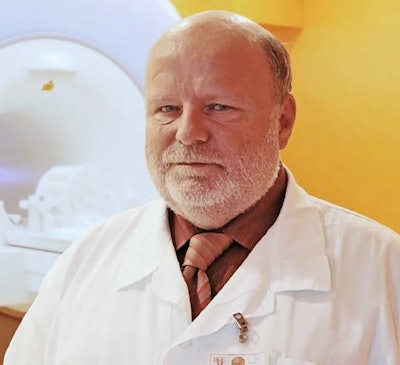 "I always hoped to meet some friendly extraterrestrial who could help me to change the world (or at least interventional radiology)," said Prof. Jan Peregrin.All photos courtesy of IKEM and CIRSE
"I always hoped to meet some friendly extraterrestrial who could help me to change the world (or at least interventional radiology)," said Prof. Jan Peregrin.All photos courtesy of IKEM and CIRSE
After starting his career in diagnostic radiology, Peregrin moved into cardiovascular and interventional radiology (IR), fascinated by its innovative spirit and ability to help patients. He not only mastered diagnostic angiography and peripheral balloon angioplasty but also played a key role in the early development of coronary angiography in the Czech Republic. He also worked at the University Hospital in Kuwait from 1984 to 1987, where he helped introduce peripheral angioplasty.
“I did not know that in Kuwait, only a very small number of people walked more than 20 to 30 meters,” he told Endovascular Today in a Q&A interview. “They weren’t experiencing claudication because they were driving more than walking. That is why the occlusive disease of the arteries was very advanced, and it was not easy to find good candidates for percutaneous transluminal angioplasty (PTA).”
The main challenge in Kuwait was to persuade vascular surgeons that PTA works, he said. “Very slowly, and with a lot of effort, I succeeded [in making] PTA a recognized method of arterial lesion treatment. The most important lesson I learned was that if you want to introduce a new treatment method, you first have to trust in it yourself and employ all your efforts to validate it. If you fail, start again from the very beginning.”
Peregrin trained several Czech interventional cardiologists who later became prominent experts in the field, but eventually decided to quit cardiology to fully concentrate on both vascular and nonvascular IR procedures. He was appointed full professor at Charles University in 2008 and lectured extensively at its faculties in Prague and Hradec Králové.
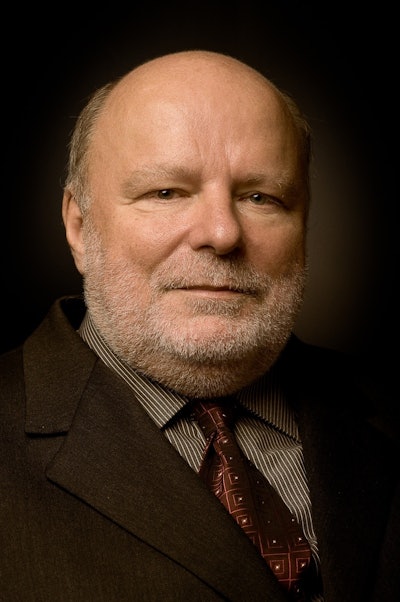 Prof. Jan Peregrin received the CIRSE Gold Medal in 2014.
Prof. Jan Peregrin received the CIRSE Gold Medal in 2014.
If radiology, and especially IR, wants to survive, it’s essential to specialize, Peregrin told Endovascular Today. “Radiology is such a wide and complex discipline that nobody can know it all/ Radiology is now in the situation where surgery was in the first half of the previous century: It started to divide into subspecialties, and later on, it was transformed into more or less independent specialties. No one doubts today that a thoracic surgeon is a surgeon, but no one expects him or her to practice abdominal surgery. I believe that if radiology does not evolve in a similar way, the other medical professions will tear us apart, taking the most attractive parts of radiology for themselves.”
Peregrin also had a keen interest in science fiction.
“I have always hoped to meet some friendly extraterrestrial (preferably a BEM [bug-eyed monster]) who could help me to change the world (or at least interventional radiology), but so far, this has not happened,” he told Endovascular Today. “To inspire innovation, sometimes it has been helpful to talk about problems with somebody outside of medicine who could see things differently. For example, this was how we developed the modification of pHEMA (poly[2-hydroxyethyl methacrylate]), which is now being tested in our department as an embolizing material.”
Peregrin's efforts helped secure official subspecialty status for interventional radiology in the Czech Republic, where he served as the chief examiner for the national board certification, according to CIRSE. “He strongly contributed to CIRSE congresses and ESIR courses and was the driving force behind the Prague International Workshops on IR from 1994 to 2002. He served as CIRSE treasurer (2005), vice-president (2007-2009), and president (2009-2011), and organized the memorable 1999 annual meeting in Prague. He was awarded the CIRSE Gold Medal in 2014.”
Despite his many achievements, “Jan Peregrin was a humble man, always ready to help but never overbearing. His kindness and dry humour will be fondly remembered by many,” CIRSE stated. “Prof. Peregrin will be remembered not only for his remarkable clinical and academic achievements but also for his generosity, humility, and unwavering commitment to excellence. He trained and inspired generations of radiologists and interventionalists who now carry forward his mission to advance patient care through innovation and education.”




